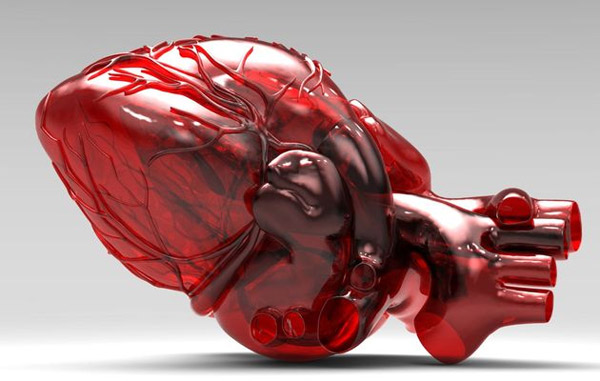 3D printing is used to make car parts, phone cases, and even fashion accessories. The process is also being used successfully in medicine. Now, 3D printing is making heart surgery safer for a growing number of pediatric patients.
3D printing is used to make car parts, phone cases, and even fashion accessories. The process is also being used successfully in medicine. Now, 3D printing is making heart surgery safer for a growing number of pediatric patients.
Three weeks after open heart surgery, Mia Gonzalez was living it up on the playground and the dance stage. At home she holds a plastic replica of her heart before surgery, a souvenir for Mia to keep.
“Whose heart is that, Mama?” Katherine Gonzalez, Mia’s mother, asks her daughter. “Mine,” Mia responds. Katherine asks, “And what did they do to your heart?” Mia responds that the doctors fixed it.
This 3D model was instrumental for her surgeon, Redmund Burke, MD, Cardiac Surgeon at Nicklaus Children’s Hospital in Miami.
“So with a three-dimensional image of her heart, we can show the family what we intended to do, plan the operation and make it as minimally invasive as possible,” Dr. Burke said.
The repair was made through an incision on her shoulder blade. Mia had breathing issues since she was born. It turned out to be a vascular ring.
“It’s just basically an extra artery that they have to cut off in order to alleviate the pressure,” Katherine told Ivanhoe. “And to be able to see it and see what they actually did to her was amazing.”
The images used to make these 3D models come from a combination of MRI and CT scans.
“So we take this information, we put it into our specialized software that makes the model where you can see the inside and the outside of the heart and manipulate it anyway you want,” Dr. Burke said.
3D printing is a picture that is truly worth a thousand words.
Depending on size and materials used it takes 12 to 18 hours to print a 3D heart.
Contributors to this news report include: Cyndy McGrath, Supervising Producer and Diana Gonzalez Field Producer; Amber Sumpter, News Assistant; Jamison Koczan, Editor and Alexander Ross Noble, Videographer.